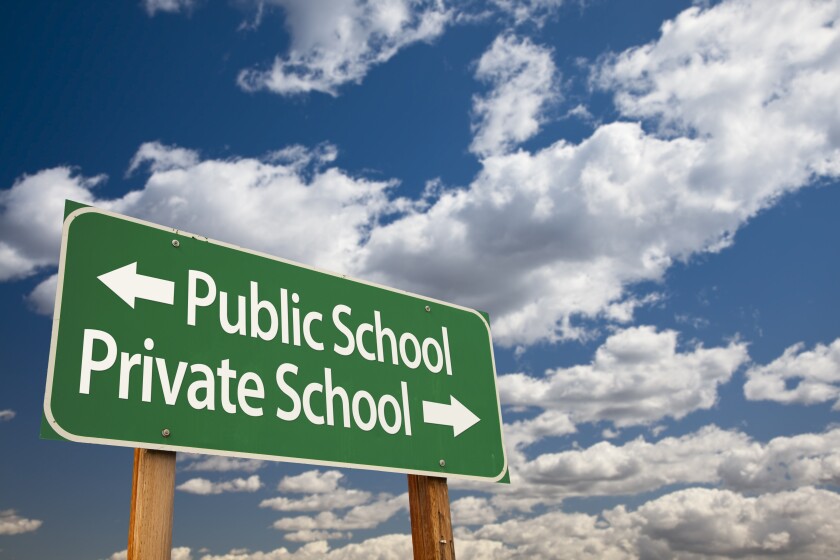In a thoughtful column representative of the calls for school board reform, Aaron Churchill of the Thomas B. Fordham Institute poses several questions that warrant a response. First, he asks if “nonpartisan” elections are “really insulating public schools from divisive politics.” All one needs to do is watch one school board discussion around COVID-19 policy to see that the answer is no. In fact, I would argue that the familiarity of public education makes school boards particularly prone to politicization. Hence, the answer to his second question, is it “naïve to think that school boards are apolitical governing bodies?,” is yes. My own work shows that school board members often identify with a political ideology despite being officially nonpartisan.
So if school board members do have ideological preferences, why keep up the ruse? Well, I think the arguments for reform are missing the point. This issue is not whether a democratic governing body will reflect the political diversity of the electorate — it most certainly will — but whether the structures of our governing institutions impact their performance. The goal of having nonpartisan elections is not to remove all politics from governing, but rather to remove a conflict point that keeps the school board from doing its job.
It comes down to conflict. Conflict on a governing board is productive when it leads to informed debate and reasoned decision-making. Conflict is destructive when it becomes entrenched or predictable regardless of the issue being discussed. To return to the topic of masking policy, a productive debate would focus on the disagreements regarding the risk calculation of mask mandates for schools, while a destructive debate would use masking policy as just another symbol for our cultural and political divides. Compromise becomes impossible when every substantive debate devolves into an existential debate over ideological superiority.
Why invite the political tribalism present in state legislatures to the local level? I fear (and would fully expect) that explicit party identification would be a crutch used to avoid engagement with difficult issues. Churchill asks, “If indeed there are ideological differences about how to run schools and educate children, shouldn’t the electorate get a hint about where candidates are likely to stand?” I think the best way to find out where a candidate stands on an issue is to ask them. The assumption that every position a school board member may theoretically take will fit neatly into two ideological camps is inconsistent with the work school board members actually do.
The work of governing, which includes budgeting, planning, internal policymaking, managing the executive, communicating with the public, etc., is not as exciting as the hot-button partisan issues of the day. But it is the work that ultimately impacts organizational outcomes. That is not to say school boards can or should avoid all hot-button issues, but I fear explicitly partisan elections invite state and federal battles into a local governing context at the expense of truly local issues.
To be more blunt, I do not want school boards to become just another venue for nakedly partisan conflict. Here in Wisconsin there is a clear effort from state political parties to become influential in local government elections. Some of this is a response to a gerrymandered system that limits productivity at the state level, and some of this reflects a sincere desire to achieve local policy goals. But to repeat myself, such efforts introduce a partisan conflict point that can detract from the true purpose of a local governing board.
I am not naïve to the point of thinking the lack of an “R” or “D” next to a school board candidate’s name prevents all partisan activities. Many school boards get mired in destructive partisan conflict despite their nonpartisan status. But as I asked earlier, why invite such conflict through a permanent change in structure? Now more than ever it is up to local government boards, like school boards, to show that governing is still possible despite societal divisions. We can disagree about specific issues without creating permanent entrenched conflict.
Michael R. Ford is an associate professor of public administration at the University of Wisconsin, Oshkosh, where he teaches graduate courses in budgeting and research methods. He currently serves as the president of the Midwest Public Affairs Conference and as an elected member of the Oshkosh, Wis., Common Council. He can be reached at fordm@uwosh.edu.
This column was originally published by the American Society for Public Administration’s PA Times Online. The views expressed are those of the author and do not necessarily reflect the views of ASPA as an organization or of Governing’s editors or management.












